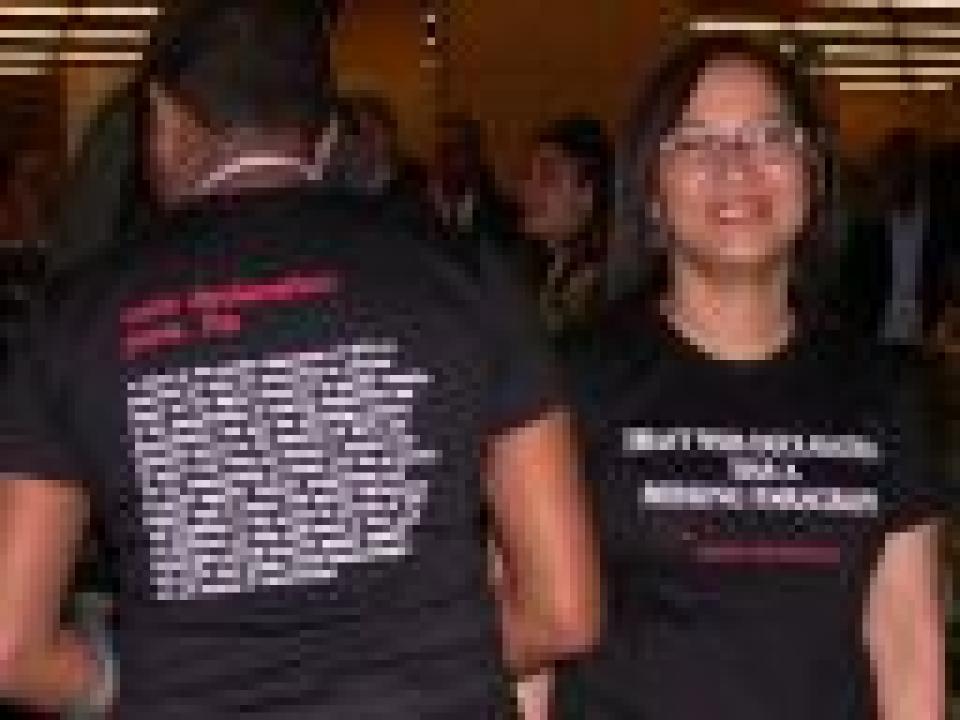
Most of the women involve with ICTs are middle-class young urban women, well educated, employed or with little economic problems. The digital gap, which reflects other gaps that exist in our world today like social, economic and cultural barriers that marginalize large sectors of the population, is clear when it comes to considerate women’s access to ICTs.
In these considerations we should also include the fact that an older generation of women was kept away from technology with a discourse that diminished their interest and possibilities. Scientific and technical work had a male tag on and “ladies” were not easily allowed in a field that was looked upon as too complicated and time consuming.
These issues and many more were discussed in the workshop “Networking for Change and Empowerment: Building a Feminist Agenda for ICT Policies” that APC Women’s Networking Support Programme and APC LAC ICT Policies Monitor organised during the World Social Forum, in Porto Alegre, last January.
Participants had time to share their views and questions and to give some thought to the fact that although the women’s movement has adopted ICTs in their work as an important tool, it has given little attention to ICT policies. Mostly, women have seen ICTs only as a tool and have left aside other issues, like their strategic use and the relevance of ICT policies that would facilitate more and better access to women, specially those in marginalized areas, unemployed, illiterate or who have not the chance to even know how a computer works.
In the discussion, participants stressed that ICT policies should consider:
Access and infrastructure
Access and ICT training for women over 50 years old
Training with a gender perspective
ICTs Strategic use
Networking to enhance citizenship and people’s rights
They also recommended the following:
- There should be more awareness raising in the women’s
- Women need to access more information about ICT development and norms, regulations and connectivity agendas in their country and elsewhere
- It is important to disseminate good practices and successful experiences of gender perspective integration at different levels, mainly at the level of public policy formulation and implementation
- It is important that civil society groups, in particular women groups, increase and enhance their capacities for lobbying and influencing local and national ICT policy processes
Workshop results showed that there is a clear need of women’s groups for increasing and enhancing their capacities for influencing local, national, regional and global ICT policy processes. The key aspect is to link the advancements that women’s groups have reached in the field of strategic use of ICTs for their empowerment to the field of ICT policies. There is a lot to be done and the discussion is just starting.
- 6052 views






Add new comment